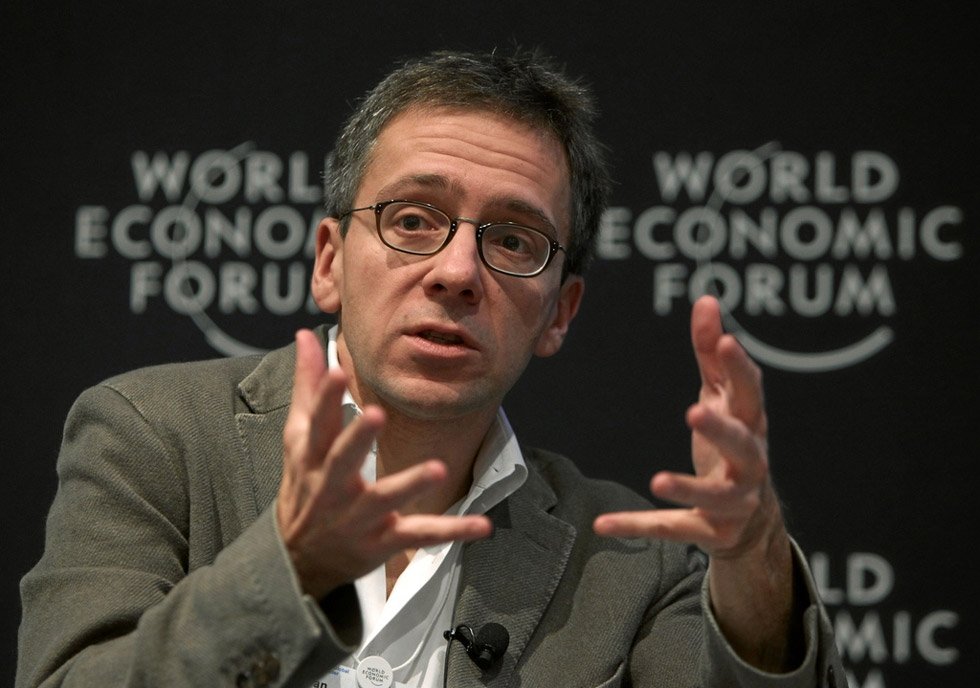(New York – Brussels Morning). The evocation of the term “new Cold War” is overly general and, therefore, inaccurate. Unlike the period of the Cold War, we are heading towards a multitude of powers with a major effect in global governance. However, there is an implicit divide between “state capitalism” – dominated by a political oligopoly and state-owned enterprises – and market-driven capitalism, which is more representative but does not have the ability to deliver credible long-term policy planning. Both models face their own crises.
State capitalism will often rely on suppression, which is a sign of weakness in terms of legitimacy. For as long as countries like China or Russia are able to deliver on income and social mobility, that “weakness” may be muted. For their part, market economies are faced with the reality of two decades of widening inequality and the rise of populism. Ultimately, the clash of these two worldviews lays the foundation for a global alignment that could, in time, become bipolar.
To understand the state of play, we talk to someone that has closely observed and, to an extent, helped shaped the evolution of global political perceptions for three decades. Ian Bremmer is the host of GZERO World, which airs weekly on US national public television and is a frequent guest on CNN, Fox News, MSNBC, the BBC, Bloomberg, and other international media platforms.
He is an analyst and academic with whom both European and American audiences are familiar. The founder and president of Eurasia Group is a political scientist that has worked in intelligence collection, analysis, and policy development for decades. He serves as the Foreign Affairs Columnist and Editor-at-Large for Time magazine and currently teaches at Columbia University. He is a prolific writer and the author of no less than ten books on international governance, including the New York Times bestseller Us vs Them: The Failure of Globalism, which examines the rise of populism across the world.

Ambassador Tedo Japaridze (TJ): China and Russia have supplied most emerging economies with their own vaccines: from the Western Balkans to Latin and Central America and Africa. However, their own uptake of their vaccine was nowhere near that of the United States and Europe. Do you feel that state capitalism has “won” the vaccine diplomacy game, overall?
Ian Bremmer (IB): Not at all. First, when compared with the Pfizer-BioNTech and Moderna mRNA vaccines, China’s Sinopharm and Sinovac jabs are less effective. The Chinese products have stirred controversy inside some of the countries that have purchased them. The mRNA vaccines have efficacy rates above 90 percent, while the WHO found in June that the Sinovac vaccine “prevented symptomatic disease in 51% of those vaccinated,” and Sinopharm was about 70% effective. Both Chinese drugs were highly effective in preventing Covid-19 hospitalisations, but the WHO also noted that few adults over age 60 were part of the trials of either Chinese drug. That skews the results by allowing mostly younger, healthier people to take part. Also, the Chinese drugs were only tested against the virus that emerged originally from Wuhan, not the more dangerous variants that have since emerged.
In the case of the Russian vaccines, the issue is partly about drug efficacy but more about the lousy rollout. Russia’s Sputnik V vaccine is now in use in nearly 70 countries, and some international studies say it’s safe and effective. But one of the big drawbacks in state capitalist countries is the ability of government to override its own bureaucracy and the private sector for political reasons—and the secrecy that process sometimes demands. Yes, Sputnik was the world’s first vaccine authorised for use in any country (in August 2020), but that’s mainly because the Russian Health Ministry approved it before its phase I and II trial results were published—and before its phase III trial had even started!
That’s a big part of why the WHO and European Medicines Agency have so far refused to approve Sputnik V for emergency use. There have also been a bunch of embarrassing stories about Sputnik use in other countries. In April, Brazilian regulators rejected Sputnik as dangerous. (They reversed themselves in June to let in a very small amount at a time when Brazil’s COVID cases were through the roof).
Slovak officials said in April that the Sputnik doses it received from Russia did “not have the same characteristics and properties” as the Sputnik doses that had been evaluated in international studies. They basically accused Russian officials of switching up vaccine samples to save political face by hiding their own inability to process the best product as quickly as they could fill orders for it.
Even in Russia itself, there are grave doubts about Russian-made vaccines. A poll conducted in March found that 62 percent of Russians didn’t want to be vaccinated. At the end of June, just 15% of Russians had received one dose of a vaccine that had been available for nearly a year.
There are problems with Western vaccines and vaccination processes too. The US and Europe have their own problems with vaccine hesitancy. But the effectiveness and production of the innovative mRNA vaccines far outstrip those in state capitalist countries.
The bottom-line: The pandemic has effectively demonstrated some of state capitalism’s most basic flaws—and the implications they can have for people around the world.
TJ: In a G-Zero World, in which Iran has its own Covid-19 Vaccine and an ever-tighter relationship with China, is it effective for the West to weaponie finance? Can you do “maximum pressure” in a world in which state capitalism advances?
Bremmer: The US still has the global reserve currency and the strongest banking system, and nobody else wants to be exposed to secondary sanctions. But there are plenty of countries with governments strong enough to maintain domestic political control and make trouble abroad despite US sanctions. Russia is the most obvious example, but even Iran and North Korea have long resisted US pressure for change. That’s not new at all. And it’s become far more challenging to pressure China into changes that makes the CCP uncomfortable.
That’s why the Biden administration has tried to maintain many of the same policies, including via the weaponisation of finance that Donald Trump pursued, but in close coordination with, rather than defiance of, US allies. Want to change Chinese behaviour? You better have as many European and Asian allies as possible on board when you pick that fight. And even with Russia, Biden has tried to coordinate much more closely with Germany on issues like the Nord Stream 2 pipeline than we’ve seen in the past.
If Washington wants to continue to use market power as a geopolitical weapon, it will need as many friends in the room as possible.
TJ. In a digital world with different digital ecosystems – i.e. Russia, China, the West – the lines between “open” and “closed” regimes seem less neat than we might like. Who is more effective in guaranteeing public health?
Bremmer: I agree with you that the United States is becoming less open to the rest of the world.
In the US’ favour, its political institutions proved their toughness through the turmoil of the Trump presidency. He pushed, but they didn’t give way. The biggest ongoing American advantage is that the wealth and technology gaps between the US and its allies are actually widening. That boosts US stability across the board.
But the US is becoming an even more polarised society, which threatens to paralyse US politics. The United States is not the only country burdened with a bitterly divided electorate, public cynicism about the political class, wealth inequality, partisan journalism, and tribal racism. But these problems look to be getting worse in the US in coming years—and when the world’s most powerful and influential nation becomes angrier and more dysfunctional, that’s bad news for everyone looking for international leadership that is more rational and more ambitious.
I have to add though that China and Russia aren’t trying to open as they once did. It’s harder for China’s Xi Jinping to offer China as an alternative to US leadership when he’s blocking the WHO from investigating the origin of the pandemic, and with countries that bought Chinese vaccines going back into crisis and potential lockdowns. Russia is still focused mainly on beating back democracy in former Soviet countries and on cyber mischief in Europe and the US.
TJ: Within a single week, the EU announced its “Fit for 55” agenda and China launched its online Greenhouse Gas Emissions Trading Platform. The United States is full of good intentions, but the oil and gas lobby is not likely to move that swiftly. Do you trust “state capitalism” or open markets to set the standards required to save the planet?
Bremmer: The US will always have the problem of corporate capture of regulatory processes that slow the process. US energy companies will continue to use their influence within Congress to push back whenever green-supporting politicians and activists change rules. Obama sets tougher emissions standards. Trump rolls them back. Biden then returns to the Obama approach, and a future Republican president will roll them back again. That’s the reality of polarised American politics and the role of corporate money in the rules-making process.
The Chinese Communist Party can decide on a strategy and follow through long-term, with far less interference from entrenched interests. That’s an advantage of state capitalism and one-party rule generally. The advantage of the private sector-driven West is that tech innovation will play a crucial role in any serious bid to reach net zero emissions, and though China has made strides toward improving indigenous innovation, I’d still look toward the US and Europe for useful solutions. The importance of Europe, of course, is that it avoids some of the disadvantages that plague the US and China. There is a grassroots consensus for green ambitions that doesn’t exist on the same scale elsewhere, but there is also a private sector with international partners that spur innovation.
TJ: We, Ian, have known each other since the early 1990s. Russia and the so-called “post-Soviet” states were always on your radar, specifically regarding democratisation and capacity building in states like Georgia, Ukraine, Moldova, Azerbaijan. Where are these counties nowadays? What would you advise policy-makers in that part of Europe?
Bremmer: These countries have very different domestic realities, but nobody wants to be part of Russia’s sphere of influence. The backlash is currently most obvious in Ukraine. (Putin recently boosted that animosity yet again with his recent argument in writing that history proves Ukraine is part of Russia.) The war continues to simmer in the Donbas. Georgia obviously has its own tough recent history with Russia and a continuing interest in maintaining solid ties with Europe, the US and China. But all these countries want to hedge their bets by boosting relations with others.
Azerbaijan certainly got some useful help from Turkey in the most recent episode of its conflict with Armenia. Moldova elected a Harvard-educated, pro-EU economist as its president last year. Russia finds itself competing with China in the Central Asian states. Even Lukashenko would like to avoid the need to ask Putin for help, though he’s not in a good position these days to avoid it.
Looking over all these questions, I see a theme: The contest for supremacy between state capitalism and the private-sector-driven democracies will continue for the foreseeable future, and everybody needs a diverse group of friends. Georgia needs them. America does too.




